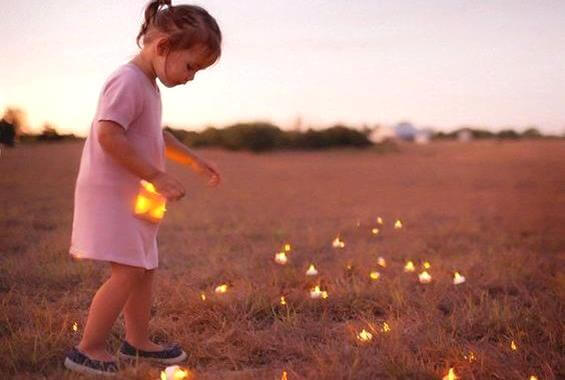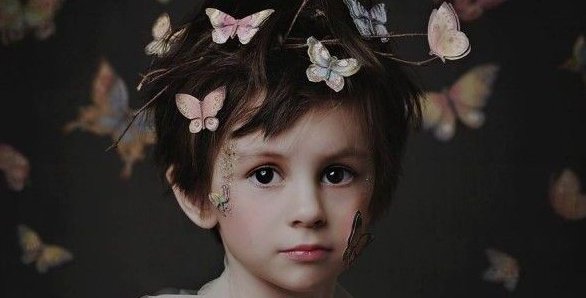Years of Education and We Still Don't Know How to Love Ourselves

Failure. Unfit. Hyperactive. Low motivation. Challenging. There are many, many labels given to children throughout their schooling. We rarely stop to look and understand what emotion is behind every difficult student.
It’s interesting how in scenarios such as in business or politics, emotional intelligence is valued as essential, while educational institutions do not include emotional intelligence in curricula.
Education should give us the power to be able to fend for ourselves, and there is no value in teaching children to be good in science or literature if we first do not teach them what self-esteem, respect and empathy are.
Cognitive skills remain essential to the academic system. Emotions, meanwhile, seem to be that “taboo” aspect which are to be restricted to the private sphere.

An education that forms minds but not people
Today’s children and adolescents are skilled strategists in new technologies. Emojis in your text messages are often their only approach to the world of emotions. But when away from mobile devices, they are unable to manage or prevent situations such as bullying.
Begonia Ibarrola, psychologist and researcher, indicates that in those schools that have integrated emotional intelligence in the classroom and in the school curriculum, bullying behaviors have disappeared and academic performance has improved significantly. It is without a doubt encouraging.
Education aims to train people who will change tomorrow’s world; therefore we instruct happy people, competent in joy, skilled in respect and bright in hope.

Why don’t we incorporate more emotional education into schools?
The weight of the cognitive aspect is still deeply rooted in our school system even though theories as “multiple intelligences by Gardner,” tell us about the clear need to work on the Emotional Intelligence of children early.
We must also keep in mind that any change at the institutional level requires time. It takes clear social awareness because investing in emotions is investing in coexistence. It is learning to be more competent in human relationships, in respect and in that change of focus where you put aside the need to educate perfect children in order to create happy people.

Perfect Children, Sad Children: The Pressure of Demand
Perfect children do not always know how to smile, nor do they know the sound of happiness: they fear making mistakes and never meet the expectations of their parents. See more
We raise unique children, not identical students
In a changing society like today’s and with a high professional competition, it does not help much to train the same kinds of students who specialize in the same areas. It is necessary to prioritize the human value by enhancing the natural capacity of the child to discover for himself what is best for him and what he offers to the world so that “he is unique“.
One aspect to consider is that we often drop all the weight of a child’s education on academic institutions. This is not the right approach. We are all educating agents, with the family being the first and most essential place of learning.
The family: first stage in Emotional Intelligence
The field of neuroscience makes this clear: the emotional context in which a child grows up will largely determine their further development and even their personality.
Recognition, reciprocity, secure attachment and emotional communication are threads of balance that allow the child to grow in freedom and maturity. If you want to give the world a child capable of respecting others, listening and using affection over aggression, act as a role model. Take care of your words, your judgments and actions. Be the best example.

The school: a microcosm of the social stage
The school will be for the child a clear example of that world he must face tomorrow. Relationships with peers and with authority figures (the teachers) will serve to help him develop new and important skills.
In centers where emotionally healthy habits and tools are applied, we see that children are very receptive to this type of knowledge. Integrating them into everyday work can help children improve their relationships and become more assertive in preventing attacks or initiating friendships.
Emotional Intelligence becomes a habit that helps optimize their learning, to channel anxiety or stress. This may improve their academic results. A fact that is really encouraging.
Educating is learning how to leave a print in the hearts of children.

“Just Breathe”, A Beautiful Short Film That Helps Children and Adults Manage Their Emotions
This film promotes emotional awareness as a primary vehicle to change our way of experiencing our emotions. See more
Failure. Unfit. Hyperactive. Low motivation. Challenging. There are many, many labels given to children throughout their schooling. We rarely stop to look and understand what emotion is behind every difficult student.
It’s interesting how in scenarios such as in business or politics, emotional intelligence is valued as essential, while educational institutions do not include emotional intelligence in curricula.
Education should give us the power to be able to fend for ourselves, and there is no value in teaching children to be good in science or literature if we first do not teach them what self-esteem, respect and empathy are.
Cognitive skills remain essential to the academic system. Emotions, meanwhile, seem to be that “taboo” aspect which are to be restricted to the private sphere.

An education that forms minds but not people
Today’s children and adolescents are skilled strategists in new technologies. Emojis in your text messages are often their only approach to the world of emotions. But when away from mobile devices, they are unable to manage or prevent situations such as bullying.
Begonia Ibarrola, psychologist and researcher, indicates that in those schools that have integrated emotional intelligence in the classroom and in the school curriculum, bullying behaviors have disappeared and academic performance has improved significantly. It is without a doubt encouraging.
Education aims to train people who will change tomorrow’s world; therefore we instruct happy people, competent in joy, skilled in respect and bright in hope.

Why don’t we incorporate more emotional education into schools?
The weight of the cognitive aspect is still deeply rooted in our school system even though theories as “multiple intelligences by Gardner,” tell us about the clear need to work on the Emotional Intelligence of children early.
We must also keep in mind that any change at the institutional level requires time. It takes clear social awareness because investing in emotions is investing in coexistence. It is learning to be more competent in human relationships, in respect and in that change of focus where you put aside the need to educate perfect children in order to create happy people.

Perfect Children, Sad Children: The Pressure of Demand
Perfect children do not always know how to smile, nor do they know the sound of happiness: they fear making mistakes and never meet the expectations of their parents. See more
We raise unique children, not identical students
In a changing society like today’s and with a high professional competition, it does not help much to train the same kinds of students who specialize in the same areas. It is necessary to prioritize the human value by enhancing the natural capacity of the child to discover for himself what is best for him and what he offers to the world so that “he is unique“.
One aspect to consider is that we often drop all the weight of a child’s education on academic institutions. This is not the right approach. We are all educating agents, with the family being the first and most essential place of learning.
The family: first stage in Emotional Intelligence
The field of neuroscience makes this clear: the emotional context in which a child grows up will largely determine their further development and even their personality.
Recognition, reciprocity, secure attachment and emotional communication are threads of balance that allow the child to grow in freedom and maturity. If you want to give the world a child capable of respecting others, listening and using affection over aggression, act as a role model. Take care of your words, your judgments and actions. Be the best example.

The school: a microcosm of the social stage
The school will be for the child a clear example of that world he must face tomorrow. Relationships with peers and with authority figures (the teachers) will serve to help him develop new and important skills.
In centers where emotionally healthy habits and tools are applied, we see that children are very receptive to this type of knowledge. Integrating them into everyday work can help children improve their relationships and become more assertive in preventing attacks or initiating friendships.
Emotional Intelligence becomes a habit that helps optimize their learning, to channel anxiety or stress. This may improve their academic results. A fact that is really encouraging.
Educating is learning how to leave a print in the hearts of children.

“Just Breathe”, A Beautiful Short Film That Helps Children and Adults Manage Their Emotions
This film promotes emotional awareness as a primary vehicle to change our way of experiencing our emotions. See more
This text is provided for informational purposes only and does not replace consultation with a professional. If in doubt, consult your specialist.







